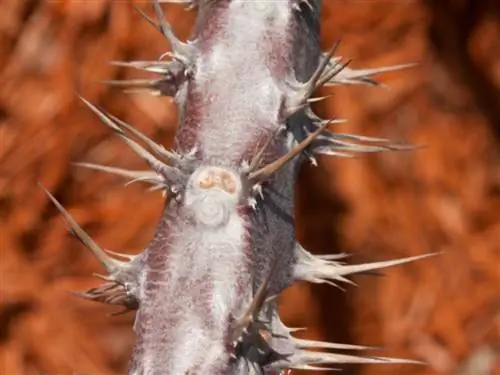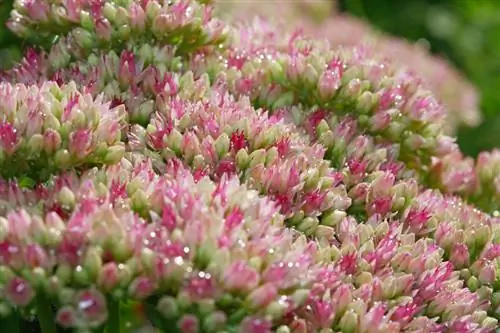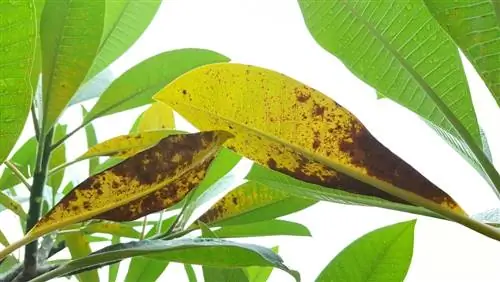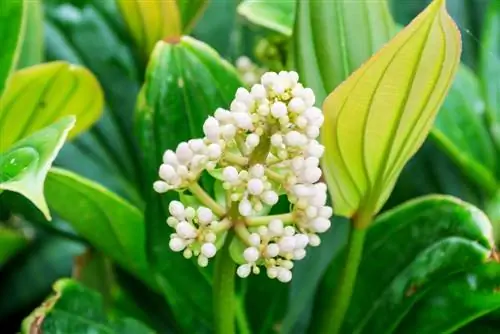- Author admin [email protected].
- Public 2023-12-16 16:46.
- Last modified 2025-01-23 11:21.
The Christ thorn, which originally comes from Madagascar, is considered to be quite robust and easy to care for. This means that it rarely gets sick or is attacked by pests. This is due not least to its toxicity, which deters many of the pests.
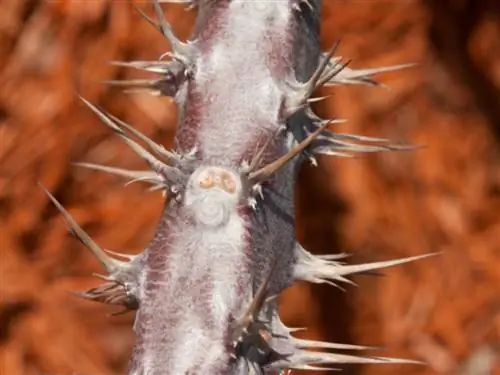
What diseases occur in Christ's thorn and how can they be prevented?
The most common diseases of Christ thorn are root rot, usually caused by waterlogging and too frequent watering, and leaf drop, often caused by unsuitable locations. Regular, moderate watering, the right location and fertilization during the growth phase prevent diseases.
What diseases does Christ's thorn suffer from most often?
One thing that can cause a lot of trouble for the Christ thorn is root rot. It is usually a result of waterlogging and/or too frequent watering. As a first aid measure, we recommend repotting the Christ thorn. Remove all rotten and softened root parts and place the plant in dry substrate. Water the soil very carefully and refrain from watering for a few days.
The leaves also occasionally fall off on Christ's thorn. If there are only a few leaves at the start of dry dormancy, then this is no cause for concern. However, if all the leaves suddenly fall off, you should investigate the cause.
Your Christ thorn probably doesn't like its location. It is too warm, too cold or too dark. Place it in an airy, bright place, for example in the garden, and it will recover quite quickly.
How can I prevent diseases and pests on the Christ thorn?
The best prevention against pests and all kinds of plant diseases is good care and the right location. If a plant feels comfortable in its place, then it is he althy and robust.
For the Christ thorn, this means that it is in a bright, warm, well-ventilated place. It should be watered regularly but not too much, and only very little when it is dry. During the growth phase, fertilize your Christ thorn approximately every two weeks.
Tips for staying he althy:
- Location: warm, bright, airy, slightly cooler during dry periods
- watering: regularly, moderately in summer, rather sparingly in winter
- fertilize: only during the growth phase
- Humidity: rather low to medium
Tip
Mildew can occur in high humidity, especially in combination with heat. Isolate the infected Christ thorn and remove all affected parts of the plant.

